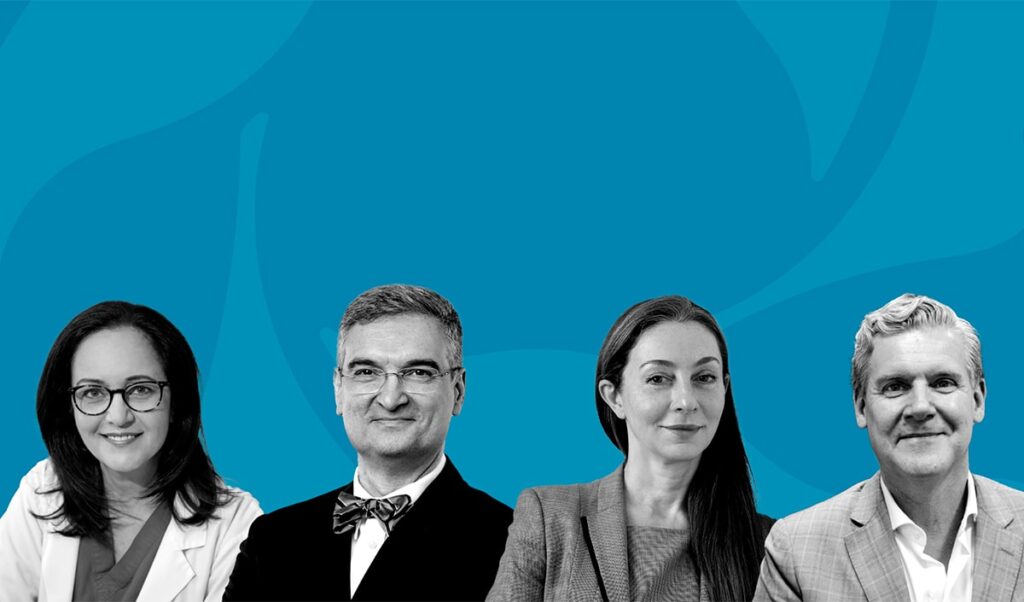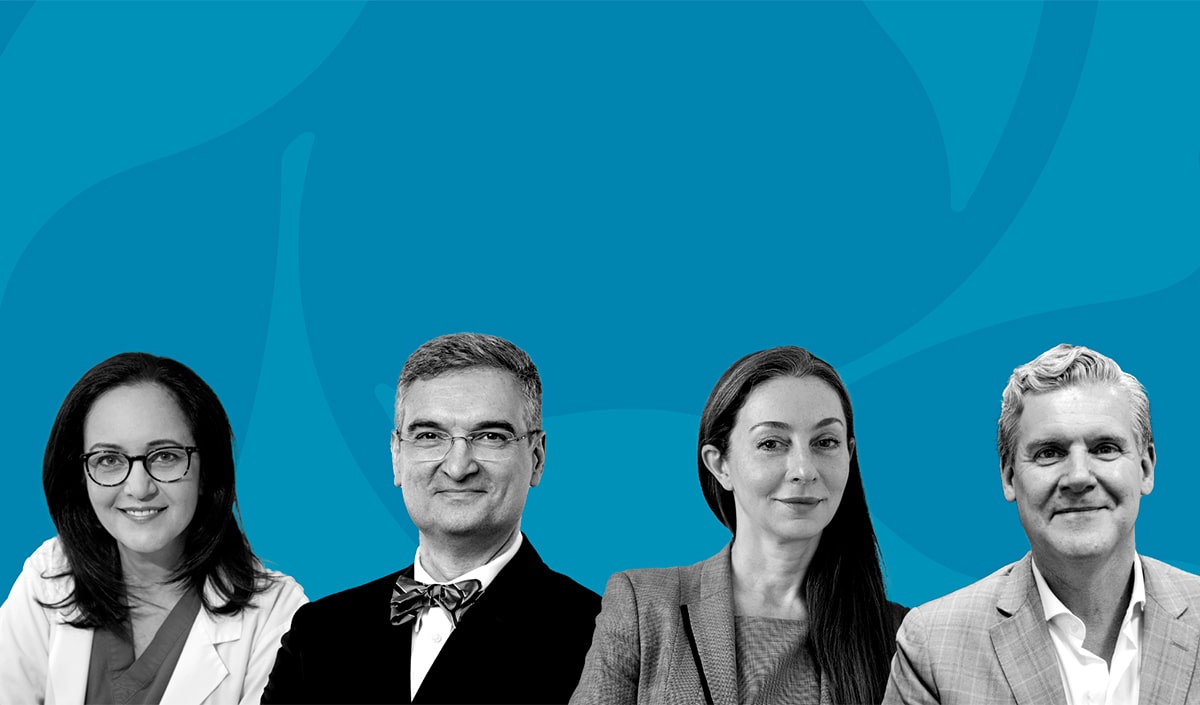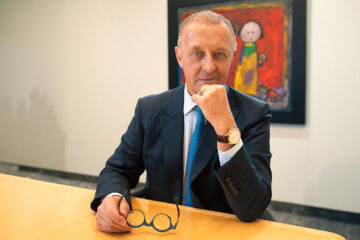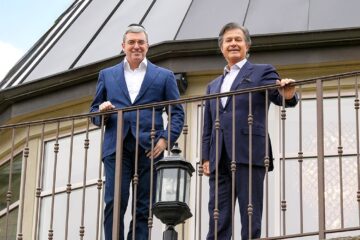Funding Makes The Difference

Private donors and fundraising events such as Diwali – A Night to Shine leads to groundbreaking medical research from Toronto’s University Health Network.
Deciding to donate to or support a charitable cause, initiative or research effort is an intensely personal decision based on many factors, but a primary concern is that your contribution is doing what it was intended to do and, most importantly, is making the maximum impact possible. For most medical researchers, private donations make all the difference to their being able to continue their work, which in some cases leads to groundbreaking advances.
Such is the case at the Krembil Brain Institute and Toronto Rehab at Toronto’s University Health Network (UHN), one of the leading such facilities in North America. It, like so many other medical institutions, is populated by brilliant doctors doing important work to further the cause of science.
While hospitals are funded by the Provincial Government, that funding is to deliver care, not research. The critical research in health care is provided by the scientists, and the funding for the scientists’ salaries depends on private donors and fundraising initiatives, which allow research to survive and thrive in the face of today’s health care challenges.
This year the Krembil Brain Institute and Toronto Rehab at UHN were the beneficiaries of the funds raised by UHN Foundation’s annual Diwali – A Night to Shine Gala, which since its inception in 2011 has raised more than $11.5 million for programs at UHN, including the Toronto General Hospital Research Institute, emergency care, cardiac care, diabetes, transplant and vision research.
“Fundraising is crucial because much of what we do involves high risk/high reward questions, meaning no one has really asked them before.”
– Dr. Mojgan Hodaie
The Diwali — A Night to Shine Gala is an evening filled with dynamic performances and exquisite cuisine and is one of the most highly anticipated events of Toronto’s social season. Through music, food and entertainment the event continues to celebrate India’s culture, traditions and legacy.
The event is incredibly important to the beneficiaries this year, Krembil Brain Institute and Toronto Rehab at UHN, and doctors such as Mojgan Hodaie, a neurosurgeon and scientist at Krembil Brain Institute, recognize the deep impact evenings such as this can have on the Institute and its groundbreaking work.
Dr. Hodaie specializes in brain imaging, with an active research lab focusing on the role of structural MRI techniques, and she fully appreciates the crucial role fundraising plays in the reality of today’s medical research.
“Fundraising is crucial because much of what we do involves high risk/high reward questions, meaning no one has really asked them before,” says Dr. Hodaie in an interview with Dolce. “We are breaking the mould by asking some very unusual questions, and donor contributions in fact become critical so that we can develop the infrastructure to allow us to carry out the research. And our patients appreciate so much that they have a centre that they can come to and be looked after. It’s also a way for them to remain engaged and be participants in this research.”
The Krembil Brain Institute is doing world leading research and is fortunate to have doctors such as Gelareh Zadeh on its faculty, not only as a neurosurgeon and scientist, but also as medical director of the Krembil Brain Institute. Her clinical practice focuses on skull-base neurooncology, with a dedicated general brain tumour clinic and many multidisciplinary clinics that she has established. Her specialty is rare brain tumours, where she is dedicated to the goal of advancing surgical clinical trials.
“These are unstudied tumours and by definition quite rare because the instances are so low, two or three in a million,” says Dr. Zadeh. “So we must identify patterns so we know how to treat them. We need to be able to use that signature unique to each tumour in order to determine the individual outcome or treatment available or, potentially, avoid surgery”.
Funds secured through private donations, or raised by events such as the Diwali – A Night to Shine Gala is the lifeblood for the important work being undertaken by medical researchers around the world. Illustrative of the deep expertise of the brilliant minds affiliated with University Health Network is Milos Popovic, who came to the medical research field from the aerospace industry, never intending to become an academic, but instead putting his training as a biomedical engineer to work.
Popovic is the director of KITE, which stands for Knowledge, Innovation, Talent, Everywhere, the research arm of the Toronto Rehabilitation Institute of UHN. Among his many fields of expertise are functional electrical stimulation, brain-machine interfaces, assistive technology, robotics and signal processing.
People who have a stroke, or a spinal cord injury may be profoundly disabled afterwards. Perhaps for about 10 per cent it’s very minor, though, sadly, approximately 10 per cent pass away. Of the remaining large group, about half suffer profound effects, such as losing the ability to use hands, legs or speech. Coming up with a technical solution to restore physical functions is what attracted Popovic.
“What I have discovered is that you do not need an assisted device,” says Popovic about his work. “But you can bring the technology where you stimulate the muscles in the arms or legs, and by repetitively doing tasks such as reaching objects and manipulating them, you start reprogramming the brain and spinal cord, and after about 40 to 60 hours of therapy, the patient, who may have been paralyzed, will be able to grasp objects. Similar technologies are now being developed to restore locomotion, or walking.”
The real miracle of the human body is how everything is connected and how, after injury, recovery is possible. One of those dedicated to repair and regeneration is Dr. Michael Fehlings, a spine surgeon and scientist at Krembil Brain Institute and KITE, whose research is so directly helped by funds raised by philanthropy and events such as the Diwali Gala.
“I became interested in spinal cord injury because I was struck by how severe the impact was of spinal cord injuries and also brain injuries,” Dr. Fehlings told Dolce. “I thought if I could figure out how to enhance the recovery, repair and regeneration after injury, those results would be applicable to the management of a broad variety of patients in neuroscience, including for Alzheimer’s, Parkinson’s, ALS, traumatic brain injuries and strokes.” Some of the award-winning Dr. Fehlings’ research has resulted in discoveries and treatments that have become standard clinical practice around the world and have been published in leading medical journals such as The Lancet. One of the most groundbreaking is his work on new advancements regarding spine stem cells, which is currently in late-stage, pre-clinical experimentation. Here he deals with engineered neural stem cells, which are the building blocks from which the brain and spinal cord develop.
“What’s cool is that we can generate customized neural stem cells for an individual — we don’t need to go to fetal tissue, or embryos,” says Dr. Fehlings. “We can take any cell from a person and reprogram those to make neural stem cells, which are specific to the region or nervous system, and genetically engineer them with control switches to turn on and off various genes that will then modify the environment.”
How did you spend YOUR day today? Speaking with Dr. Zadeh, Dr. Hodaie, Dr. Fehlings and Milos Popovic can be intimidating, but it is also inspiring and wondrous. It may seem like a simple act to write a cheque, or an enjoyable occasion to attend a splendid evening of entertainment such as Diwali – A Night to Shine, but when you give it some deeper thought, simple and enjoyable acts of support can mean so much to those on the front lines at places like UHN, who continue to push research boundaries while impacting so many lives in such a meaningful and positive way.
Interview by Estelle Zentil



















































































